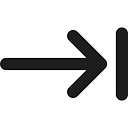Money Management: Young Hustler on a Budget
There is a worrying trend about the rising number of Nigerians especially among young entrepreneurs that are classified as bankrupt or broke.
It may interest you to know that most of these people are earning income in form of transfer payments such as pocket monies, gifts etc or direct/ indirect labour income regardless of how little this amount might be. The basic reason for this trend can be easily linked to impulse buying (buying what you don’t need) which is often caused by peer pressures, celebrity influence and the bandwagon effect. These social trends have made many entrepreneurs bite more than they can chew and has resulted in many of them suffering financial depressions and setbacks.
prepare to begin thinking about longer-term financial planning and above all pool much more money in savings and investment towards achieving financial freedom
Many underrate the power of budget but here are few things budgeting
However, Creating a budget as a millennial can help you meet personal goals such as studying abroad, writing professional exams, vacations and even remain better prepared for emergencies, stay out of debt, keep accurate and up-to-date records of your finances, prepare to begin thinking about longer-term financial planning and above all pool much more money in savings and investment towards achieving financial freedom.
Here are some recommended Budgeting Categories & Percentages:
Saving/Investing — 5–10%
Housing — 20–30%
Utilities (bills, electricity, Internet/Data Subscription etc.)- 4–7%
Food — 15–20%
Transportation — 6–20%
Clothing — 2–4%
Medical/Health — 2–8%
Miscellaneous — 2–5%
Vacation — 2–5%
Emergency Funds — 15–20%
As the foundation is to a good house structure so is a budget to effective financial planning.
Getting yourself a personal budget can help you in managing structure to your spending habits. It is a way of organising your use of money by thinking in terms of spending categories and setting priorities. A budget helps you establish boundaries and helps you recognise spending limits before you exceed them.
Just as a blueprint guides the building of a house, a personal budget acts as a guidance system to steer you away from costly impulses and money-burning behaviours.
Another way is to avoid impulse buying: Just because something is on sale, doesn’t mean it’s a good buy. And coupons sometimes aren’t worth it. Once you’re thinking about buying an item, ask three questions:
* Will you survive without it?
* Are other things more important?
* Will making this purchase set you back financially?
